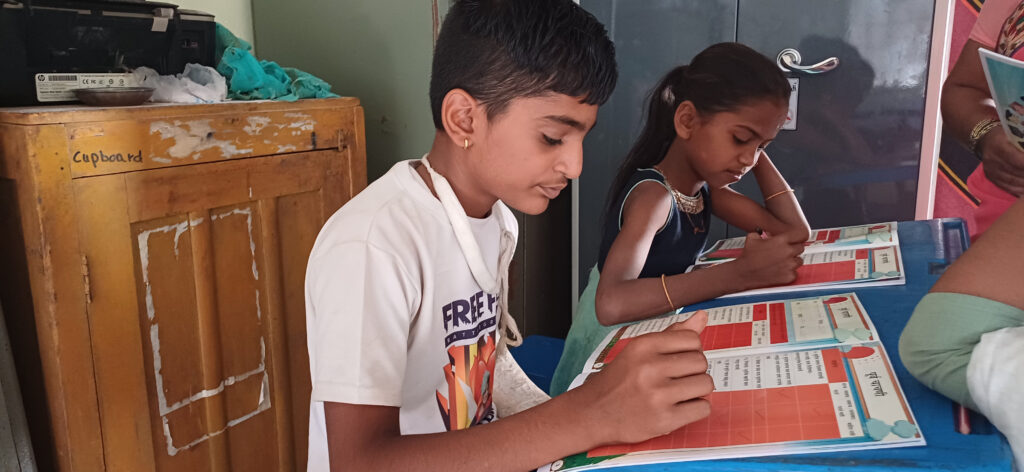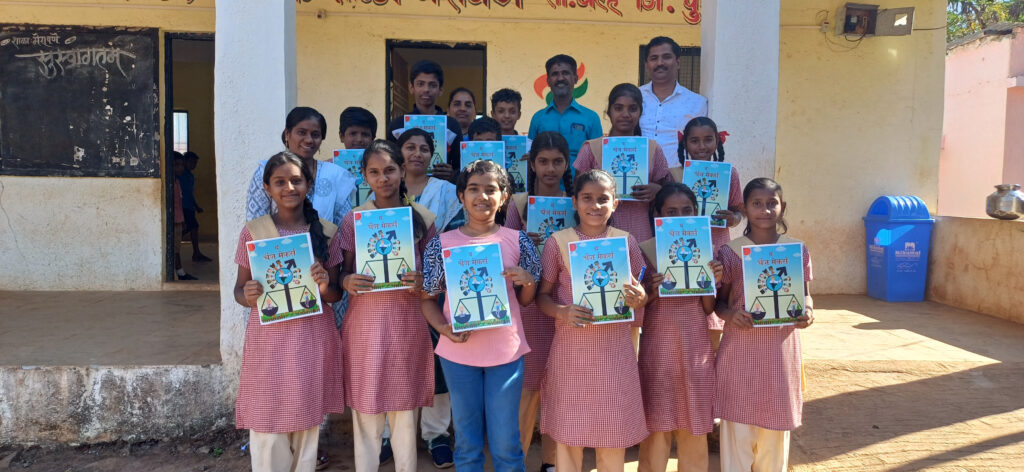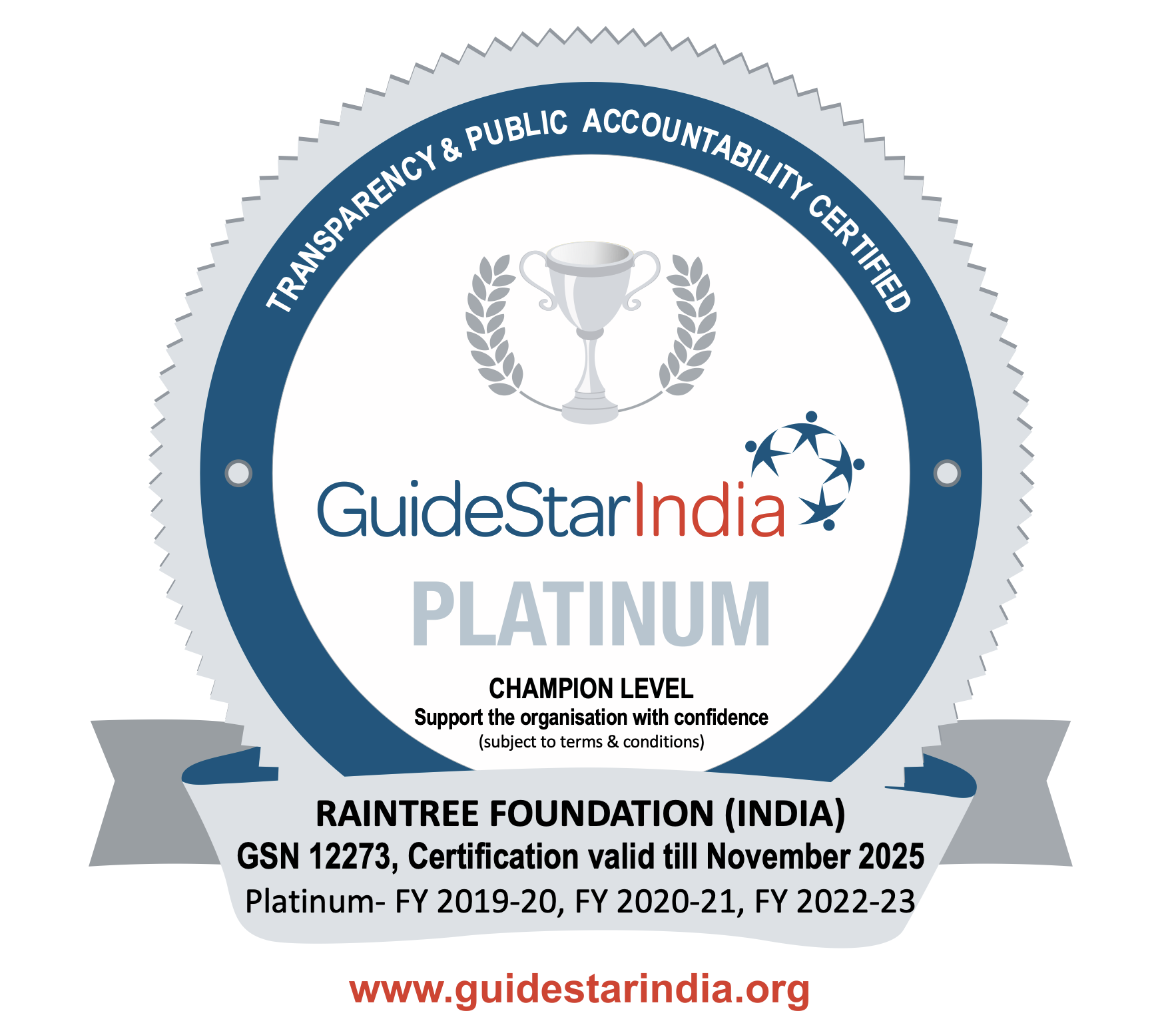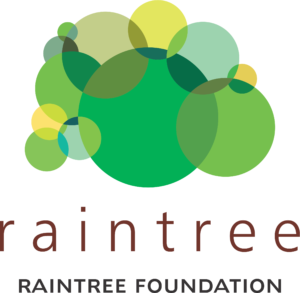Knowledge Centre
July 2024
Expert's Corner

The Unseen Backbone: Why Gender Equality is Essential for Sustainable Climate Action
Women worldwide clock in a phenomenal 1,640 hours of unpaid work every day. In India alone, unpaid domestic work contributes 7.2% to the country’s GDP. This is primarily because women everywhere face patriarchal controls and unequal burdens of work. But the situation is even bleaker for rural women.
The Harsh Reality of Rural Women
A stark 27% of rural girls in India are married away before they reach 18 years of age. Access to higher education remains a distant dream for most due to a non-favorable environment at home, longer and unaffordable distances to commute daily, and sexual harassment on roads and in public transport. They also lack access to technology and/or the inability to use it, so much so that basic mobile phone ownership is skewed, with only 47% of women owning one compared to 91% of men.
Beyond Stereotypes: Women in Agriculture
Like most arenas, women play a crucial role in agriculture and other farm-based livelihoods, contributing more than men in many cases. However, gender stereotypes like men as farmers and women’s inability to understand technology restrict the latter. The inequity extends to finance, as formal credit remains inaccessible to them. Micro-finance groups provide some support but have many limitations.
The Burden of Unseen Labor
These challenges come at a heavy cost, especially in depleting natural resources and uncertainty in agriculture. The burden on women’s health is immense, with walking for water and fuelwood and carrying them manually.
The numbers reflect the situation’s starkness. Although 73% of rural women workers are engaged in agriculture, only about 14% are operational holders (Agriculture Census, 2015–16). Because of deep-rooted patriarchy and lesser returns due to inadequate efficient technologies, they continue to bear the brunt of hardship. Agriculture is already uncertain, further aggravated by a crisis.
Climate Change and the Widening Gap
A UN report says climate change is widening the income gap for rural women. The report Unjust Climate analyses India as one of the world’s most exposed regions to drought, heat stress, and extreme precipitation. Adding to this, female-headed households lose 8% more of their income due to heat stress and 3% more due to floods, compared to male-headed households, further increasing the unpaid workload on poor women
A Call for Change
Women are integral contributors to regional development, but has the latter benefited them appropriately? The answer is a resounding no. Women continue to do unpaid labour, keeping households running and caring for their families. Their work is considered private and hence unpaid. Discrimination and policies place a disproportionate burden on women for care and domestic responsibilities, limit their rights to land, prevent them from making decisions over their labour.
Policymakers must see this critically and develop women-friendly policies and programs that benefit them. Along with addressing practical needs, strategic issues need to be addressed through mass-based campaigns against differential treatment, which includes violence against women.

Gender Lens for Sustainable Development
Traditional knowledge must be validated and used in the changing context, as The Raintree Foundation’s commendable work imbues. Any development work should develop a gender lens to understand structural inequalities and how they hamper women’s access to development. Gender equality is a matter of social justice and a prerequisite for sustainable development. Hence, along with working on practical needs, we need to address the issues arising from social inequalities.
Empowering female small-landholders, investing in care, protecting women’s health, and building women’s leadership are important strategies. It is time we recognize the struggles of women and work towards a more equitable society.
We can all help by challenging biases, supporting organisations working on women’s empowerment, and advocating for policy changes. Together, we can build a future where women’s contributions are valued, and their voices are heard.
‘Gender equality is not just a matter of social justice, but also a prerequisite for sustainable development’ — Preeti Karmarkar, Chief Functionary & Managing Trustee, Nari Samata Manch
Trained as a Social Scientist and Gender expert, Preeti Karmarkar has been active in the social development field since 1998. She has worked in the areas of grassroot mobilisation, project development and management, policy research, and development with national and international exposure. She has been working on the issues of domestic violence and sexual harassment at the workplace. Preeti also provides training/consultation for implementation of PoSH Act and works as an external member for many organisations. She is also a member of the Local Committee for Pune district. Earlier, she has worked at Women’s Studies Centre (University of Pune), YASHADA and BAIF Development Research Foundation. Currently, she is pursuing her doctoral degree with reference to the PoSH Act and the unorganised sector.
To subscribe to our Newsletter


Contact Info
- 101-104 First Floor - Sunrise Business Park, Rd Number 16, Wagle Industrial Estate, Thane 400064
- contactus@theraintree.org
Raintree Foundation © 2023. All rights reserved.

